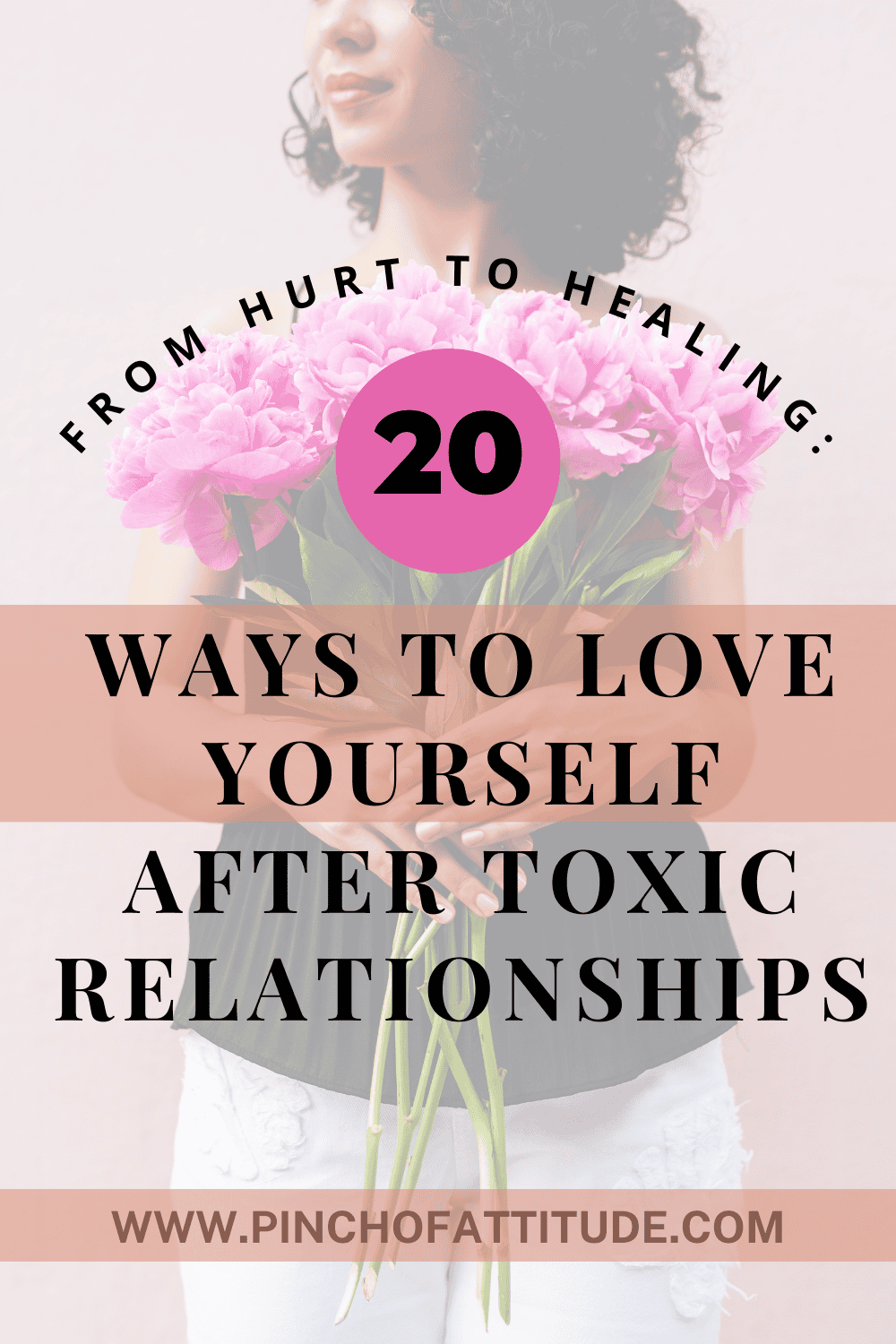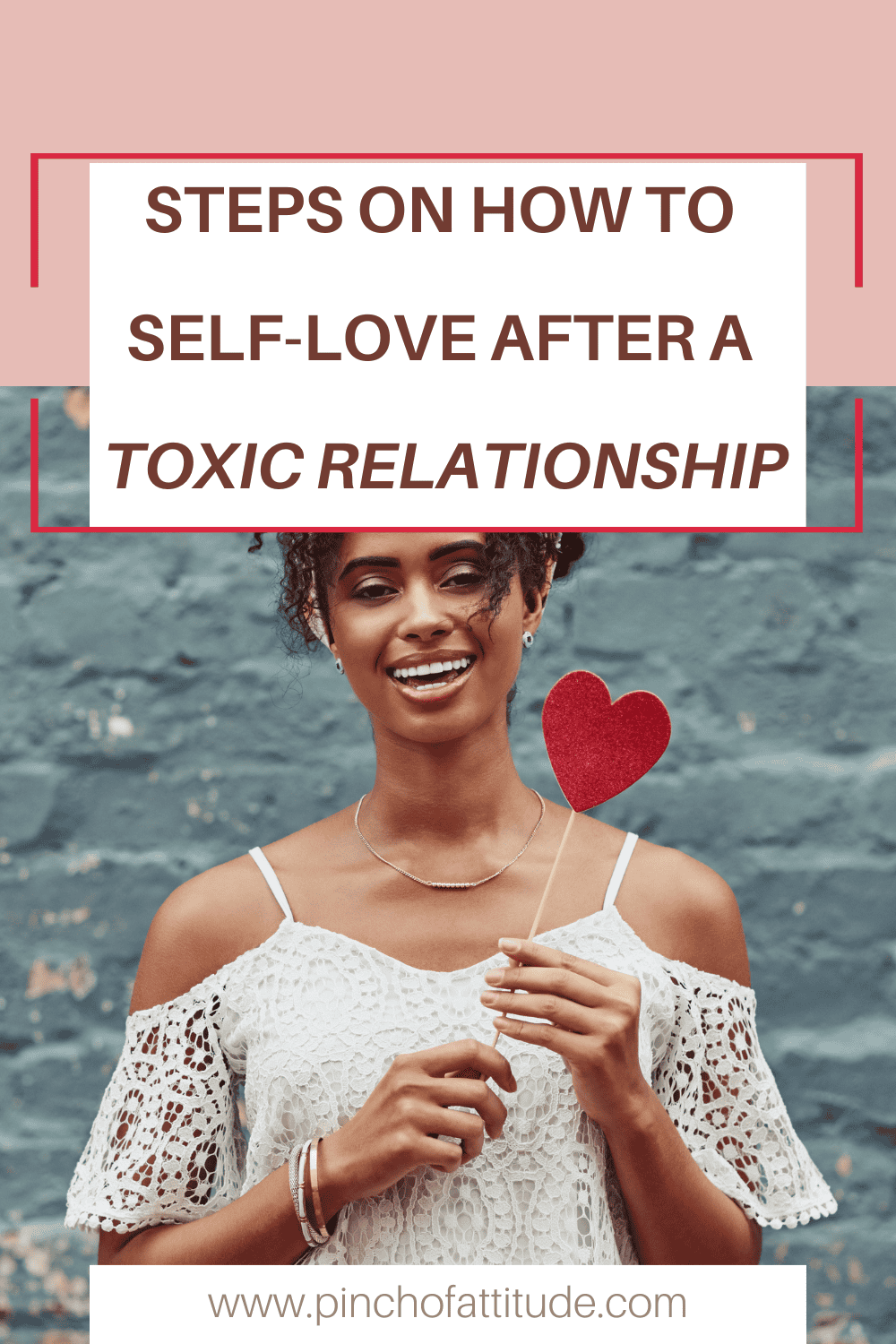No one starts out looking for a toxic relationship. They just sort of happen, but they have a strange way of becoming habitual.
Suddenly, toxicity is like your “thing”. You might share memes about it, joke about it with your friends, and desperately try to cover up the fact that deep down, you are humiliated and angered by the fact you wind up with people who treat you horribly.
Chances are if you’ve ever found yourself up at night Googling “signs of a toxic relationship,” you’re probably in one. And getting out of it can feel impossible. It’s ironically scarier to leave than it is to stay.
But eventually, you do. Or maybe the other person cuts you loose. It hurts, but it’s really a blessing because now, you have the time and space you need to love yourself in all the ways they didn’t.
Follow me to learn steps on how to self-love after a toxic relationship and start your healing process today.
- Toxic relationships can erode self-esteem and identity, making self-love crucial for recovery and rediscovery of personal identity post-breakup.
- Healing after a toxic relationship involves acknowledging the hurt, cleansing life of unhealthy attachments, and learning to thrive independently.
- Therapy, particularly trauma-informed, can be an effective aid in the healing journey, providing a safe space for venting and structured help.
Table of Contents
How to Self-love After a Toxic Relationship?
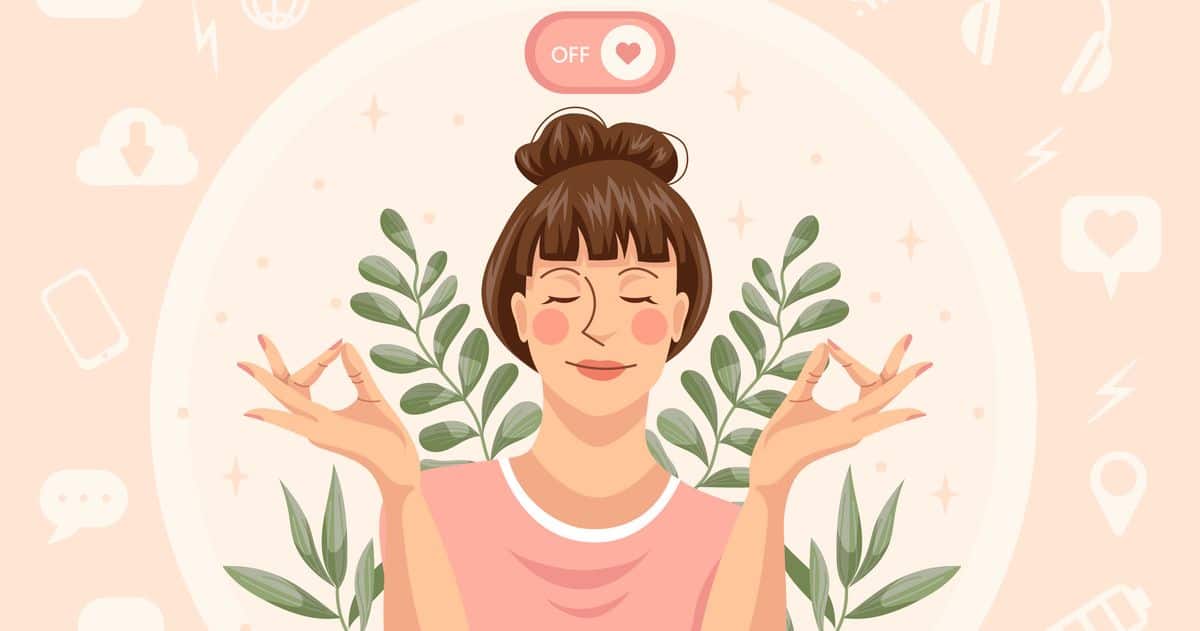
Just because we know self-love in relationships is important with ourselves or with others, it doesn’t mean we always practice it. Like many other parts of mental health, it can fall by the wayside as we go through everyday life.
But loving yourself after a toxic relationship is essential to recovering and rediscovering your identity. Self-compassion helps you heal from trauma, and it allows you to reclaim parts of yourself that felt lost in the relationship.
When I’ve been in bad relationships, I’ve known they were toxic because I didn’t feel like myself in them. I was trying hard to either hide myself or morph into whoever I thought my partner would like best.
And the worst part was that they seemed to like it when I did what they wanted. Losing myself was validated by their responses, so I just kept going until I couldn’t take it anymore.
But what do you do with the you that’s left in the smoke after the relationship finally goes up in flames?

1. Don’t Ignore How You Feel
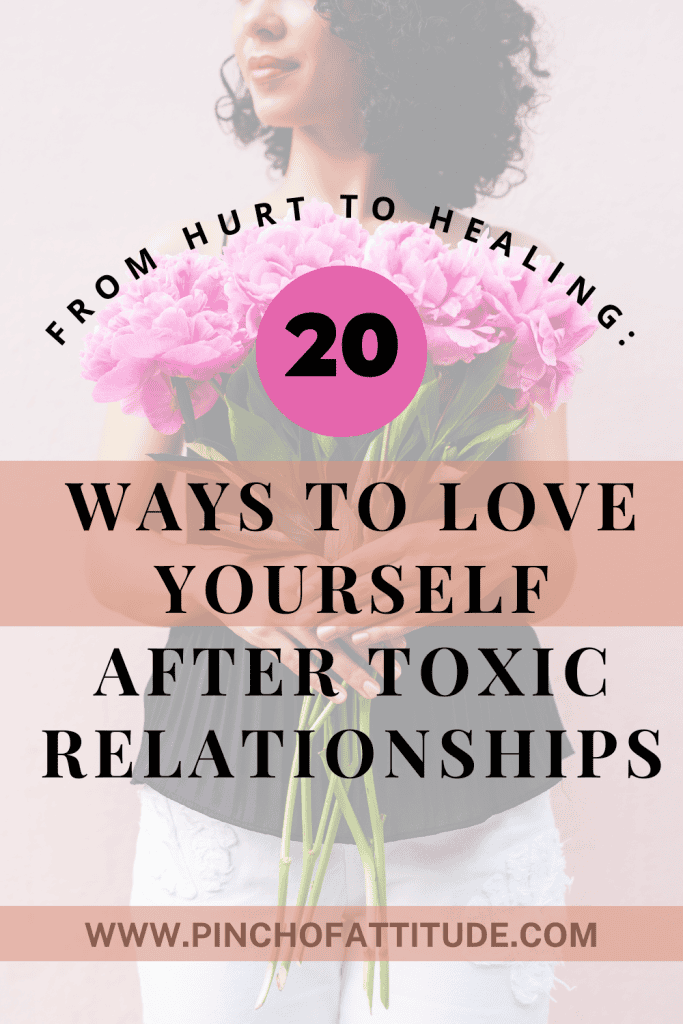
Embracing your feelings is an important step in healing.
I remember the time when I was in your shoes, feeling a whirlwind of emotions, often conflicting. Instead of running away from them, I allowed myself to feel.
It’s OK to grieve, feel sad, angry, or confused. Your feelings are valid and they exist to guide you towards your healing path.

2. Do NOT Blame Yourself for What Happened
In a toxic relationship, it’s easy to fall into a blame game.
Remember, you didn’t deserve what happened. I once believed it was my fault, but it was only when I shifted this belief that true healing began.
This isn’t about blaming anyone for their actions, but recognizing that people behave based on their own issues and insecurities. You are not responsible for their behavior.
3. Do NOT Contact Your Ex Even for Checking In
It’s natural to want to reach out, especially if they were a significant part of your life.
I experienced the same urge but realized it was a counterproductive step to my healing. Creating space allows you to start detaching and focusing on your growth. Each time you resist the urge to contact them, you’re investing in your recovery.
4. Don’t Try to Get Closure from Your Ex
Closure often comes from within, not from your ex.
I once believed I needed answers to move on, but those answers were within me, not them. Looking for closure can reopen wounds and delay healing. Instead, focus on understanding and accepting what happened, why it was toxic, and how you can prevent such a situation in the future.
5. Don’t Downplay Your Situation and What You’ve Been Through
Minimizing your pain won’t make it disappear.
Remember, it’s okay to feel hurt. I remember invalidating my pain, thinking others had it worse. But, understanding that my pain mattered was a significant part of my healing journey. Your experiences and feelings are significant, don’t let anyone tell you otherwise.
6. Seek Emotional Support from Someone You Trust
Connecting with someone who understands and supports you is invaluable.
When I was in your shoes, my best friend was my rock. Sharing your thoughts and feelings can be liberating. Support from friends, family, or a counselor can provide perspective and advice, giving you strength throughout your healing process.
7. Rediscover Who You Are and Your Values
Toxic relationships can rob you of your identity. Post-breakup, I took time to rediscover myself, my interests, and my values.
What did I truly enjoy doing? What were my beliefs? Exploring these questions can reestablish your sense of self, guiding your future decisions, including the kind of relationships you want.
8. Make Your Mental and Physical Well-Being a Priority
You are the most important person in your life. This was a revelation I had post-breakup.
Invest time in your physical health through activities you enjoy—maybe it’s running, yoga, or dancing. Also, consider therapy or mindfulness practices for mental healing. You deserve to be in good health, both physically and emotionally.
9. Focus on The Now, Do Not Look at The Past
The past can trap us with regret and sorrow, but it’s important to stay present. I learned this through mindful activities like meditation. Focusing on the now will help you appreciate the progress you’ve made and the opportunities that lie ahead.
10. Write Down How Your Toxic Relationship Affected Your Life
Expressing thoughts through writing was therapeutic for me. It gave me a clearer picture of the harm the toxic relationship brought.
This might be challenging but it’s a tangible reminder of why you left and what you want to avoid in the future.
11. You’re Not a Victim: You’re a survivor
I once felt powerless, but recognizing my strength and resilience in leaving a toxic situation was empowering. It’s not about what happened to you, but how you overcame it.
See yourself as the brave individual you are for making a tough decision.
12. Don’t Rush Through Your Healing Process, Be Patient
Healing takes time, and that’s okay.
I recall wanting to rush my recovery, but it’s a process that can’t be fast-tracked. It’s okay to have bad days. Every step, no matter how small, is progress. Be patient and gentle with yourself.
13. Be Kind and Compassionate Toward Yourself
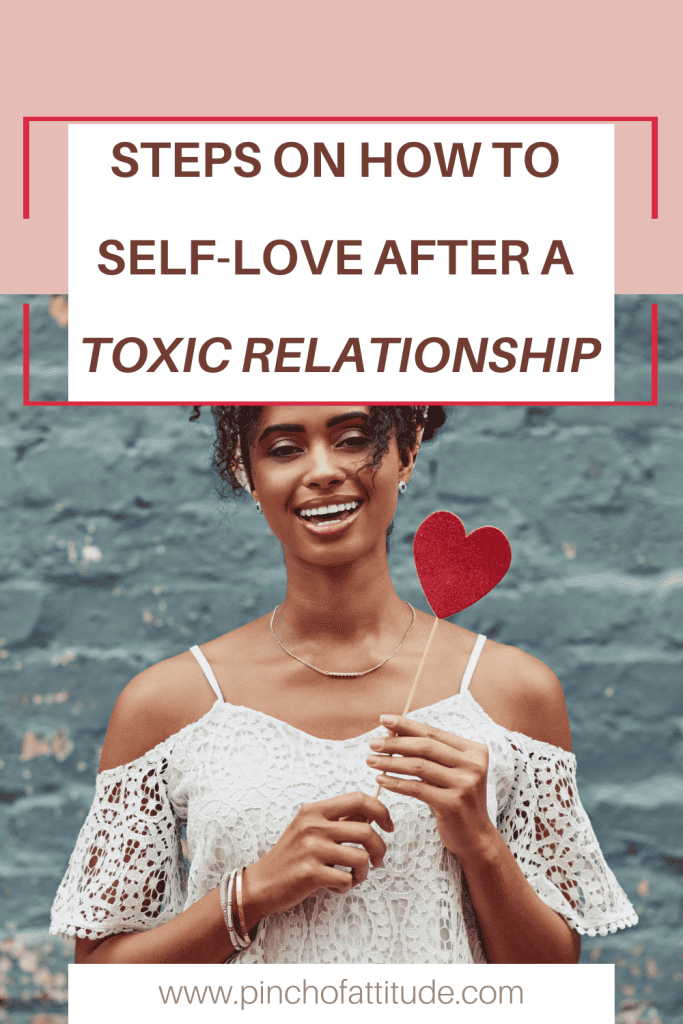
Self-compassion is key to loving yourself again after an ugly relationship. I learned to treat myself as I would a dear friend — with kindness, love, and understanding.
You might make mistakes along the way, but remember, it’s part of the process. Encourage yourself and celebrate your wins, no matter how tiny they may seem.
14. Block Your Ex’s Number
This can be a challenging step, but a necessary one for some. I realized this when incessant texts and calls became triggers. By blocking their number, you’re making a clear statement to both them and yourself: you’re choosing to move on.
15. Forgive Yourself for Being in The Situation Longer Than You Should
We often stay longer in toxic relationships due to hope or fear. I was there too.
But forgiveness is freeing. You did what you could at that time. Use this experience to grow and make better choices for your future.
16. Stay Single Until You’re Ready to Give Relationship Another Try
The period post-breakup is a time to rebuild yourself, so don’t jump into another relationship hoping that person will save you. A lot of people, both men and women that I came across made that exact mistake.
It was during the single phase that I developed resilience, rediscovered myself, and understood what I really wanted in a partner.
You’ll know when you’re ready to share your life again. Until then, enjoy your own company.
17. List Out Values That You Want in Your Future Partner
Knowing what you want in a partner is essential and it’s a must or else you’ll keep getting into bad relationships over and over again.
When I created my list, it was a mix of qualities that I admired and ones that were missing in my past relationship. This list acts as a guide, ensuring you don’t settle for less than what you deserve.
18. Write Down Your Values, What Makes You Beautiful Inside and Out
Discovering your values and appreciating your beauty is empowering. When I did this exercise, I found qualities I didn’t realize I had.
You are unique and beautiful. Recognizing and honoring these traits helps you appreciate your self-worth.
19. Find an Outlet Where You Could Express Your Feelings Freely
Expressing emotions helps a lot during the healing process, so don’t hold back.
For me, it was exercising. For you, it could be journaling, dancing, or music. Find an activity that allows you to channel your emotions constructively. It’s not about the outcome but the process of emotional release.
20. Apologize to Those You Have Neglected While You Were in a Toxic Relationship
I realized how much I had isolated myself from my loved ones. If you’ve distanced yourself from people during your relationship, it’s okay.
They’re likely to understand and appreciate your effort in making amends. It also helps rebuild those connections which are crucial in your healing process.
Related Posts:
- Where Does Lack of Self-Love Come From? Uncovering The Root Cause
- 87 Self-Love Affirmations to Unlock Your Potential & How to Do It Right
- Self-Love Journaling: Insightful Guide For Daily Reflection
- Love Letters to Yourself: Transforming Your Life From Self-Doubt to Self-Belief
- 69 Toxic Relationship Quotes to Set Yourself Free Today
Frequently Asked Questions
What are some signs of a toxic relationship?
Signs include feeling humiliated or angered by your partner’s treatment, losing your identity to please them, and feeling justified in their toxic behavior.
How does a toxic relationship impact self-esteem?
Toxic relationships drain your energy, distance you from your goals, and make you feel unworthy. They erode self-esteem as you live against your values and dreams.
What are some steps to self-love after a toxic relationship?
Steps include removing unhealthy attachments, acknowledging and accepting your hurt, rebuilding life on your terms, and seeking help from a trauma-informed therapist if needed.

